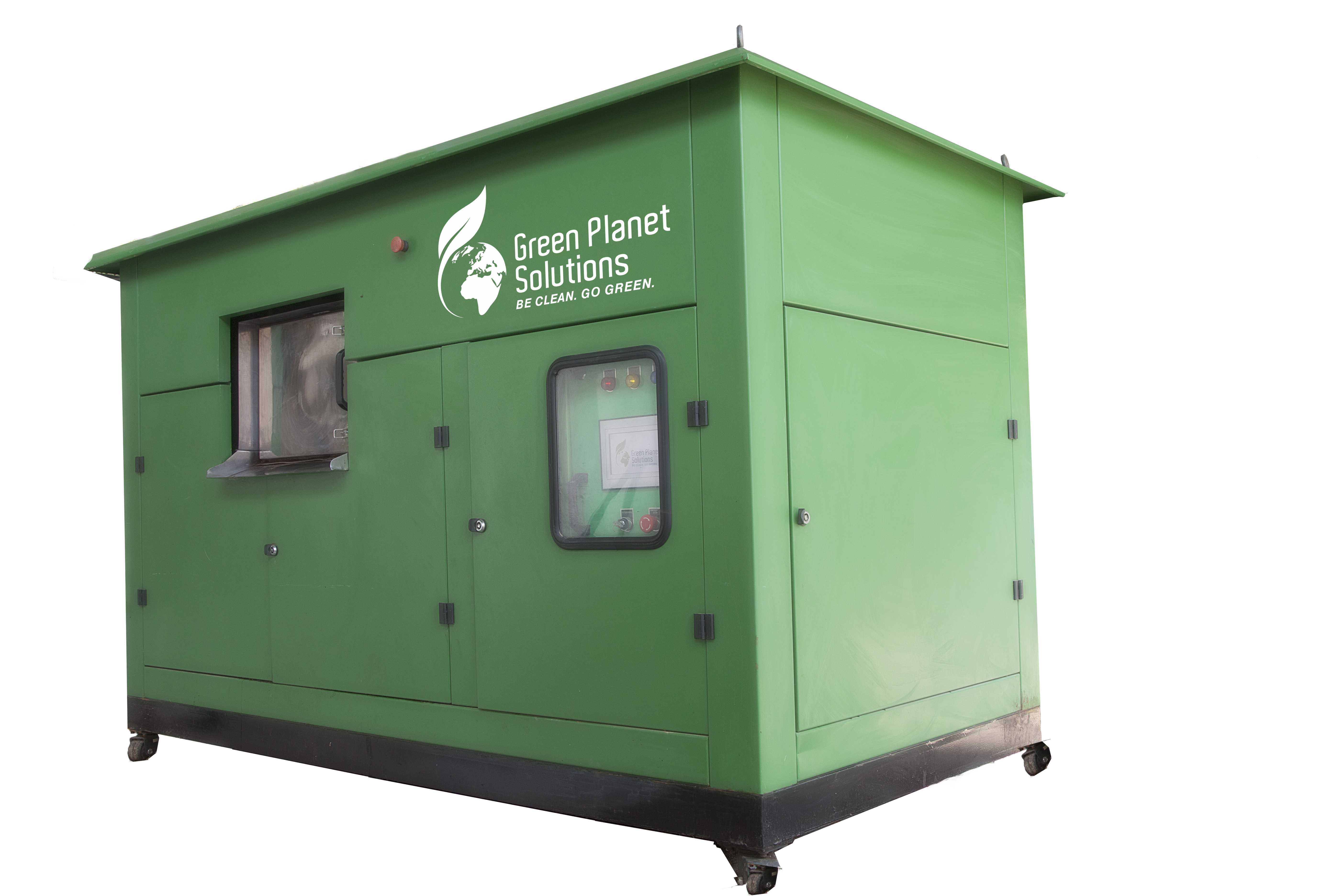Organic Waste Composter: Eco-Friendly Waste Management
The compact and eco-friendly organic waste converter machine effectively transforms solid waste into nutrient-rich compost within 24 hours. This machine is fully automatic, making it hassle-free for users. No specialized skills are required to operate this advanced organic waste converter, ensuring ease of use for businesses and households alike.
When solid organic waste is added to the food waste composting machine, the humidity sensor detects the moisture content of the wet waste and activates the process. Designed for efficiency, this machine is completely noiseless and odorless, providing a cleaner and more convenient alternative compared to conventional composting methods.
Ideal for sustainable waste management, the organic waste converter machine accelerates decomposition while minimizing environmental impact.HowOrganic Waste Composter Works?
The space-efficient design of the organic waste converter machine makes it appropriate for a variety of environments. The organic waste converter machine reduces volume by 60–70% by evaporating water content through the use of a heater. The food waste composting machine breaks down the leftover waste effectively by activating specific microorganisms. The method is simplified for users as they just need to install the bacteria once.
Just add organic waste to the organic waste converter—no need for chopping or smashing. It operates automatically, requiring no constant supervision, making waste management hassle-free. The organic waste converter efficiently processes waste and generates fine compost, which is a vital source of nutrients for plant growth. By turning organic waste into nutrient-rich compost, this machine helps in reducing landfill waste and promoting eco-friendly practices. A sustainable future depends on proper waste management, and advanced solutions like the organic waste converter play a crucial role in creating a greener and more environmentally friendly atmosphere.
Working Principle of Organic Waste Composting Machine
The food waste composting machine is a highly productive organic waste converter that simplifies the composting process, efficiently turning organic waste into nutrient-rich compost. This compost can be used to nourish plants, improve soil fertility, and support sustainable agriculture. By significantly lowering the volume of waste produced, the food waste composting machine helps in reducing landfill waste and promoting eco-friendly waste disposal practices.
The organic waste converter machine is an excellent solution for businesses aiming to reduce their environmental footprint through sustainable waste management. Many municipalities and institutions are increasingly adopting these machines to manage residential and commercial organic waste effectively.
The ecoComposter operates on the 3R principles: Reduce, Reuse, and Recycle. This process significantly minimizes waste volume while promoting sustainability. By integrating an organic waste converter into waste management systems, organizations can actively contribute to soil enrichment, reduce dependence on chemical fertilizers, and enhance agricultural productivity. Additionally, the food waste composting machine fosters responsible waste disposal, supporting a circular economy and a cleaner environment.
Features of Organic Waste Composter
Automatic
- PLC controlled
- Fully automatic
- No skill required
3 R Principles
- PLC controlled
- Fully automatic
- No skill required
Natural Process
- Completely Natural using Microorganisms
Noiseless and Odourless
- Completely Noiseless
- Completely Odourless
Processing
- Processes All Organic Waste
- Garden Waste
- Poultry Waste
- Meat Waste
Safety Features
- Mixing Blades stop when the door is opened
- Overload function
- HMI for process information
Saves Environment
- Reduces harmful Greenhouse gases
- No leachate formation
Size
- Compact and requires less space
High Quality Parts
- Stainless Steel Tank and Other Contact Parts
- Exterior MS Structure with Powder Coating anticorrosive
Fully Automatic Composting Machine


Product Video
Process

Benefits of Organic Waste Composter
Reduces waste
Food waste composting machines play a crucial role in minimizing the volume of organic waste that would otherwise end up in landfills. By efficiently breaking down food scraps and other biodegradable materials, these machines help reduce methane emissions—a major contributor to climate change. Diverting organic waste from landfills not only protects the environment but also promotes sustainable waste management practices.
Improves soil healthCompost is a valuable soil amendment that can help to improve soil health and raise crop yields. It can also help to keep moisture in the soil, reducing the need for watering.
Reduces chemical fertilizer useUsing an organic waste converter machine can significantly reduce the dependence on chemical fertilizers by transforming food and garden waste into nutrient-rich compost. This natural compost enhances soil fertility, promotes healthier plant growth, and improves overall soil structure, making your garden more sustainable and eco-friendly.
Saves moneyComposting can save money on waste disposal costs, as food scraps are one of the huge and heaviest parts of the waste stream.
Controls Odors and PestsOrganic waste composters are effective at managing unpleasant odors and keeping pests at bay, improving overall hygiene.
Prevents Groundwater ContaminationBy composting organic waste using an organic waste converter machine, harmful pollutants are prevented from leaching into groundwater, ensuring the protection of this vital resource and promoting a sustainable waste management system.
Sanitizes Organic WasteThe composting process effectively pasteurizes organic waste, eliminating harmful fungi, bacteria, viruses, and other biohazards.
Application Areas

Government

Hotels

Factories

Housing Socities

Defence

Restaurants

Hospitals

Institutions